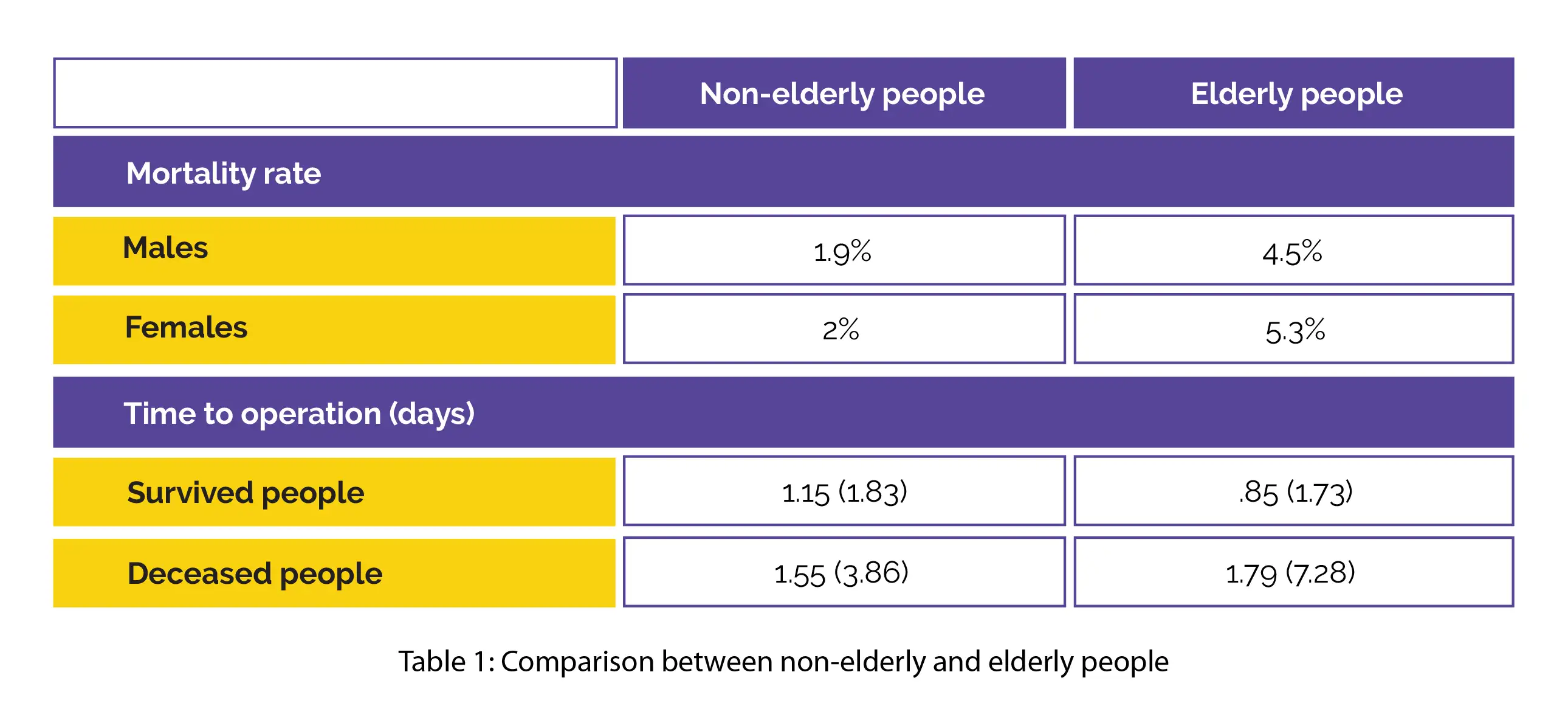Categories
Change Password!
Reset Password!


A national inpatient sample-based retrospective cohort study was carried out for identifying the risk factors of mortality in people hospitalized with duodenal ulcers.
Delayed operation, frailty, age, hospital length of stay, and presence of perforation are the major risk factors of mortality in people hospitalized with chronic duodenal ulcers.
A national inpatient sample-based retrospective cohort study was carried out for identifying the risk factors of mortality in people hospitalized with duodenal ulcers.
The study recruited 70641 people undergoing emergency admission for chronic duodenal ulcers. Collection of demographics, outcomes, and clinical data was done. For finding the risk factors of mortality, multivariable logistic regression model was utilized.
Out of 70641 participants, 40,116 (57%) were elderly (65+ years) participants and 30,525 (43%) were non-elderly (< 65years) participants. Notably, 57% of elderly people and 72% of non-elderly were males. The mortality rate of males vs females considerably differed in the elderly group whereas it was comparable in the non-elderly group. The time to operation in survived and in deceased non-elderly and elderly people is shown in Table 1:

In people with operation, the major risk factors of mortality in both elderly and non-elderly people were frailty, age, delayed operation, and presence of perforation. In elderly people, invasive diagnostic procedure was found to be a protective factor. In the final model for people with no operation, the major risk factors of mortality in both elderly and non-elderly people were frailty, age, and hospital length of stay. In all the people, the invasive diagnostic procedure was revealed as a protective factor.
For improving the outcomes, early operation in people with duodenal ulcers requiring surgical intervention is crucial.
The American Surgeon
Risk Factors of Mortality in Patients Hospitalized With Chronic Duodenal Ulcers
Nicole Lin et al.
Comments (0)